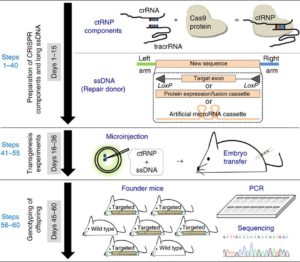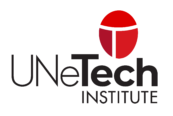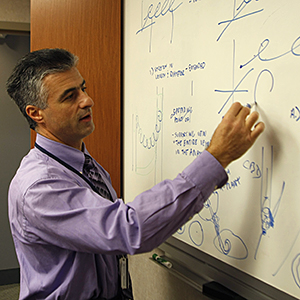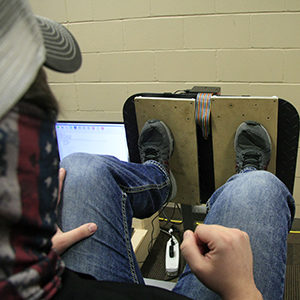RENSSELAER, N.Y. (April 23, 2018)—A technology developed in part at the University of Nebraska Medical Center was signed to a non-exclusive licensing deal that will bring Easi-CRISPR to the market.
Taconic Biosciences announced the agreement in a press release late last week, and indicated they would use the technology to genetically engineer mouse models for research purposes.
“Easi-CRISPR is the next progression of the revolutionary CRISPR/Cas technology,” John Crouse, vice president of scientific services for Taconic, said in the press release. “In an industry where time is a precious resource, access to this technology underscores Taconic’s commitment to providing our customers with the best solutions.”
The Easi-CRISPR technology could reduce research project timelines by six months, Crouse said.
A product of a collaboration between Channabasavaiah Gurumurthy, PhD, at UNMC and Masato Ohtsuka, PhD, at Tokai University in Japan, Easi-CRISPR dramatically improves the efficiency of genetic splicing. Recent headlines—and science-fiction plot lines—have featured CRISPR for is remarkable ability to precisely cut genetic code. What CRISPR cannot do very well, however, is insert or replace the genetic material.
Easi-CRISPR is that solution, providing research scientists the ability to produce genetically modified mice. That will help scientists better understand or possibly even better treat a multitude of diseases including various forms of cancer.
“The discovery of CRISPR hints at products and services that are now possible with Easi-CRISPR,” said Joe Runge, licensing specialist at UNeMed. “We’re over the moon that Taconic is the first of many to start making those possibilities real.”
Taconic is a fully-licensed provider of rodent model generation services and has over 20 years of model design experience. The company provides gene inactivation, gene mutation or replacement, transgene expression, RNAi, and gene editing via CRISPR/Cas9, pronuclear injection, and homologous recombination technologies.











